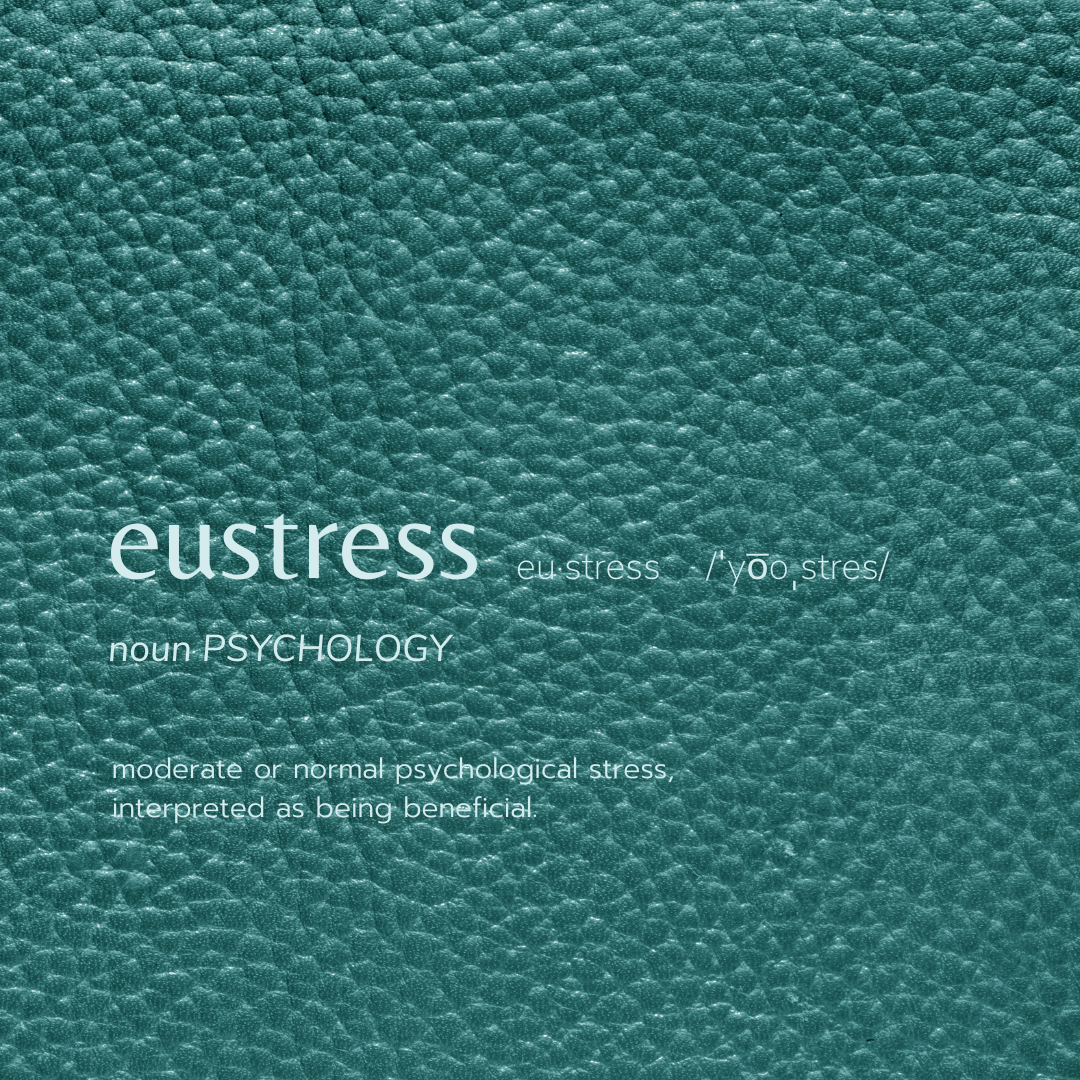
25 Mar Is there such a thing as too much “good stress”?
What is “good stress” anyway? We talked about several different types of stressors in our dimensions of wellness post a few months ago. Good stress actually has a name and, it’s called “eustress” defined by the oxford dictionary as moderate or normal psychological stress, interpreted as being beneficial. Typically it is a short term stress that leads to a positive outcome. And YES, you can have too much “good stress” when stress has a negative impact on you. But first let’s talk about what positive eustress looks like.
Eustress is characterized by positive outcomes; motivating, feeling of high energy or rush of excitement. You rely on eustress as a coping mechanism because you know about the positive outcome ahead.
Can you name a few good stressors in your life?:
EUSTRESS: good stress
- physical stressors like a hike or short term exertion from a workout
- a sweaty sauna session
- intermittent fasting
- improved performance due to the stressor
- higher energy level/getting psyched, boosting confidence to complete a task
- taking an exam, even if it’s stressful, as you know you have prepared for it
- the anticipation of a first date
- getting ready for vacation
- preparing to give a presentation
- having a baby
- increased job responsibilities with a promotion
- performing in public like at a concert
- hosting an upcoming event
- buying a new home/moving into a new city
As you can see from the above list these “good stressors” may have POSITIVE outcomes. Eustress can energize and motivate us.
TOO MUCH GOOD STRESS
TOO MUCH good stress turns into “distress”. Distress negatively affects us, whereas eustress is stress that has a positive effect on you. There are a few categories to consider when classifying eustress or distress. One would look at duration, difficulty, emotions, self efficacy and physical well being. Both eustress and distress:
- send blood to the muscles
- increase breathing rate and heart rate
- release glucose into the bloodstream, providing energy
However, factors that effect each category may be: money, shelter/a stable home, time, knowledge, social support, overall health. The way stress effects us physically is through activation of the sympathetic nervous system which is responsible for the fight-or-flight response. In a constant state of flight-or-flight directly relates to the DURATION category of the stressor. Remember eustress is characterized by short term stress with a beneficial outcome. Experiencing long periods or repeated flight-or-flight responses becomes untenable which can trigger oxidative stress that can alter our DNA.
STRATEGIES TO PROMOTE EUSTRESS
We need strategies for eustress at a personal and social level as each effects general Public Health. Ways to promote eustress personally would be:
- learn a new skill
- start a new hobby or project
- play games
- do puzzles
- mentor or teach others
- exercise at a level matched to your physical abilities
- doing volunteer work
Working on promoting your own eustress and participating in the above activities has the ripple effect which in turn effects the health of the general public. You can start by managing your own stress by booking services at Tao that promote health and relaxation.




